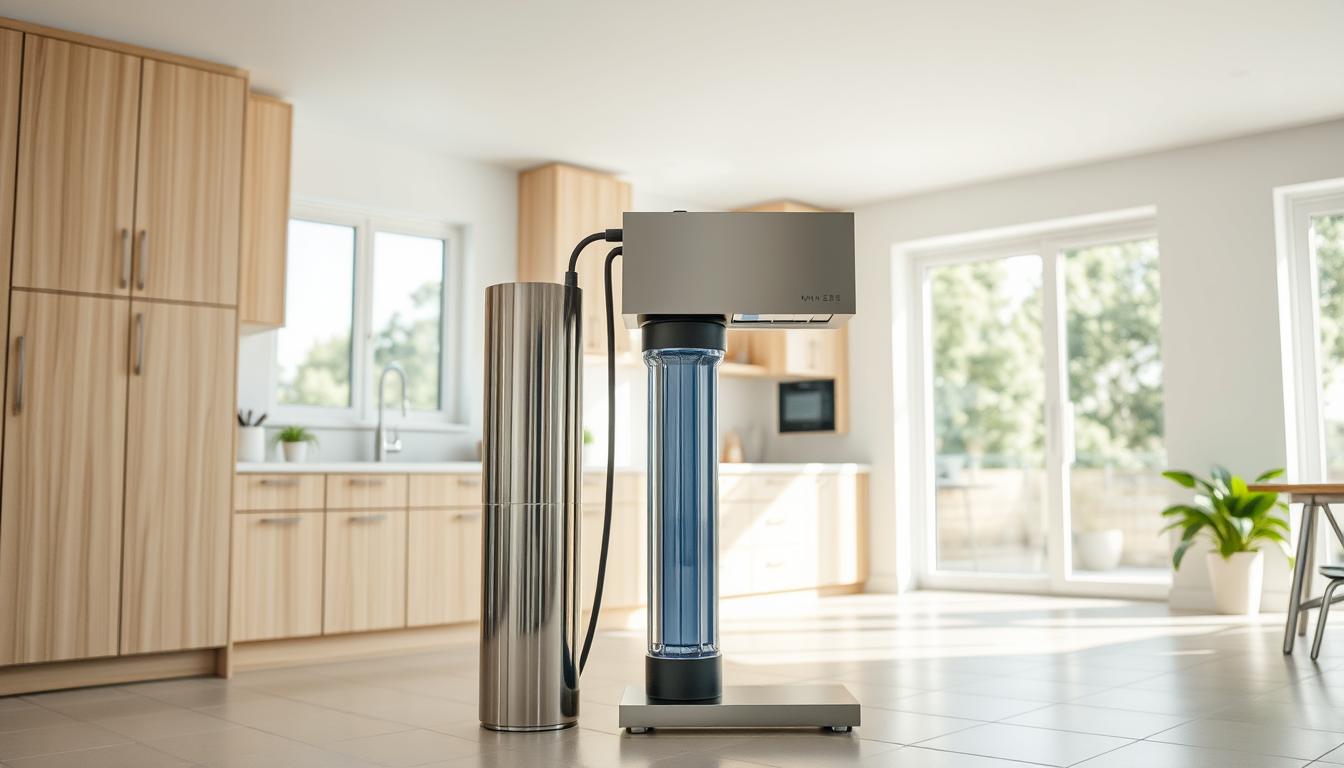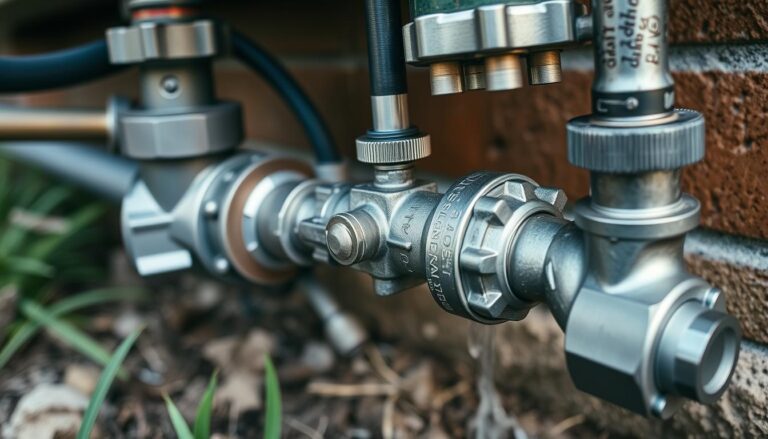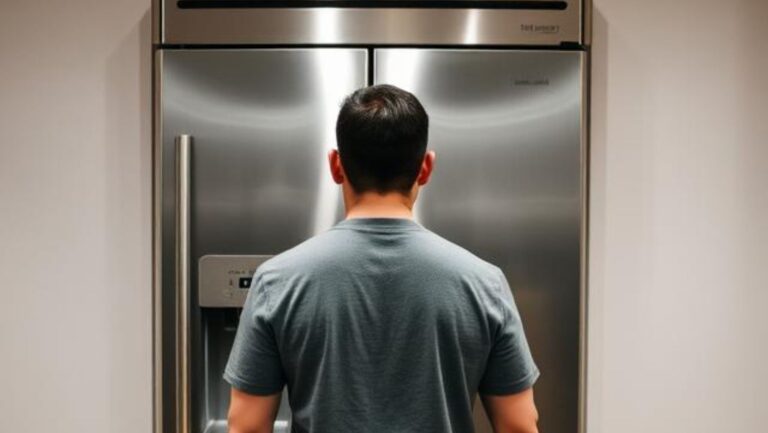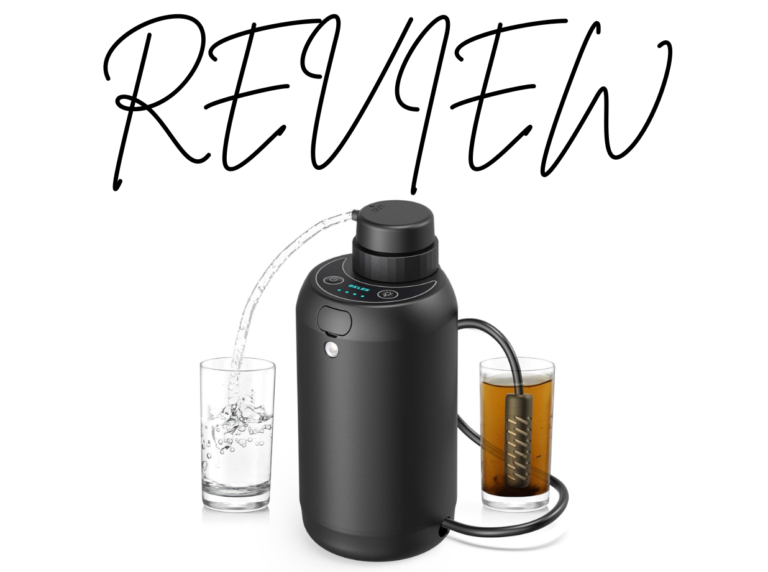6 Questions to Ask Before Installing a Home Water Filtration System
Are you certain your drinking water is safe? With numerous home water treatment solutions available, selecting the right water filtration system for home can be overwhelming.
Before making a purchase, it’s crucial to understand your water quality. The first step is to have your water tested at an independent, state-certified lab. This simple step can reveal contaminants and help you choose the most effective filtration system.
By asking the right questions, you can ensure your chosen system meets your needs and provides clean drinking water. In this article, we’ll explore the essential questions to ask before installing a home water filtration system.
Key Takeaways
- Understand the importance of water testing before installing a filtration system.
- Learn how to choose the right water filtration system for your home.
- Discover the key questions to ask before making a purchase.
- Ensure your chosen system provides clean and safe drinking water.
- Make an informed decision that suits your needs and budget.
The Importance of Clean Water in Your Home
Clean water is the foundation of a healthy home, and its importance cannot be overstated. Many factors can impact the quality of your water, and properly diagnosing these issues is crucial for selecting the right whole-house water filtration system.
Common Water Quality Issues in American Homes
American homes often face various water quality issues, including contamination from lead, chlorine, and bacteria. These contaminants can have serious health implications, ranging from gastrointestinal problems to long-term neurological damage. Some of the most common water quality issues include:
- Lead contamination from aging pipes
- Chlorine byproducts that can cause respiratory issues
- Bacterial contamination from various sources
Health and Lifestyle Benefits of Filtered Water
Installing a home water filtration system can provide numerous health and lifestyle benefits. Filtered water can improve the taste and odor of your drinking water, reduce the risk of waterborne diseases, and protect your skin and hair from harsh chemicals. Some key benefits include:
- Improved Health: Reduced risk of waterborne diseases and chemical exposure
- Better Taste and Odor: Enhanced drinking experience
- Skin and Hair Benefits: Softer skin and healthier hair due to reduced chemical exposure
By understanding the importance of clean water and the benefits of a home water filtration system, you can make an informed decision about choosing the right water filter for your needs.
Question1: What Contaminants Are Present in My Water?
Before you can choose the right water filtration system, you need to know what’s in your water. Understanding the contaminants present in your water supply is crucial for selecting an effective filtration system. This knowledge will help you make an informed decision about the type of filtration system that best suits your needs.
DIY Water Testing Kits and Their Reliability
DIY water testing kits are a convenient and cost-effective way to get an initial understanding of your water quality. However, their reliability can vary depending on the type of contaminants they’re designed to detect. It’s essential to choose a kit that tests for a broad range of potential contaminants, including lead, chlorine, and bacteria.
When using a DIY kit, follow the instructions carefully to ensure accurate results. Keep in mind that while these kits can provide valuable insights, they may not be as comprehensive as a professional water test. Be wary of companies that claim their home analyses can determine more than basic water quality constituents.
Professional Water Testing Services
For a more comprehensive analysis, consider hiring a professional water testing service. These services use state-certified laboratories to test your water for a wide range of contaminants, providing a detailed report on your water quality. Professional testing can identify contaminants that DIY kits might miss.
When selecting a professional water testing service, ensure they are certified by your state’s environmental or health department. This certification guarantees that the testing is done to rigorous standards, providing you with reliable results.
Interpreting Your Water Test Results
Once you receive your water test results, understanding what they mean is crucial. Look for information on the types and levels of contaminants detected. Compare these findings against national and local water quality standards to assess the severity of any contamination.
Common Contaminants in U.S. Water Supplies
Common contaminants found in U.S. water supplies include lead, chlorine, bacteria, and nitrates. These contaminants can come from various sources, such as aging infrastructure, agricultural runoff, and industrial activities. Understanding the common contaminants in your area can help you choose a filtration system that’s tailored to your needs.
Regional Water Quality Variations
Water quality can vary significantly from one region to another due to differences in geology, land use, and infrastructure. For example, areas with agricultural runoff may have higher levels of nitrates and pesticides in their water. Being aware of these regional variations can help you anticipate potential contaminants in your water supply.
By understanding what’s in your water and considering regional variations, you can make a more informed decision when choosing a water filtration system. This ensures you select a system that effectively addresses your specific water quality concerns.
Question2: What Type of Filtration System Best Addresses My Needs?
Before installing a water filtration system, it’s essential to identify the type that best addresses your needs. Depending on the type of contaminant and its concentration, you may need to treat all the water entering the house or only the water used for drinking and cooking.
Whole-House vs. Point-of-Use Systems
When deciding on a water filtration system, one of the first considerations is whether you need a whole-house system or a point-of-use system. Whole-house systems treat all the water entering your home, providing comprehensive protection. In contrast, point-of-use systems are installed at specific faucets or appliances, offering targeted filtration.
The choice between these systems depends on the extent of water treatment required and your budget. Whole-house systems are more comprehensive but generally more expensive to install and maintain.
Filtration Technologies Compared
Different filtration technologies offer unique benefits and are suited to addressing specific water quality issues. Understanding these differences is crucial in choosing the right water filter for your home.
Carbon Filtration Systems
Carbon filtration systems are among the most common types of water filters. They are effective at removing chlorine, improving taste and odor, and reducing certain organic compounds. However, they may not remove all contaminants, such as heavy metals or nitrates.
Reverse Osmosis Systems
Reverse osmosis systems use a semipermeable membrane to remove a wide range of contaminants, including dissolved solids, bacteria, and viruses. While highly effective, they can also remove beneficial minerals and require regular maintenance.
UV Purification Systems
UV purification systems utilize ultraviolet light to kill bacteria, viruses, and other microorganisms. They are often used in conjunction with other filtration technologies to provide comprehensive water treatment.
Water Softeners and Conditioners
Water softeners and conditioners are designed to address hard water issues by removing or altering the minerals that cause scaling. While not primarily filtration systems, they are essential for protecting plumbing and appliances from the effects of hard water.
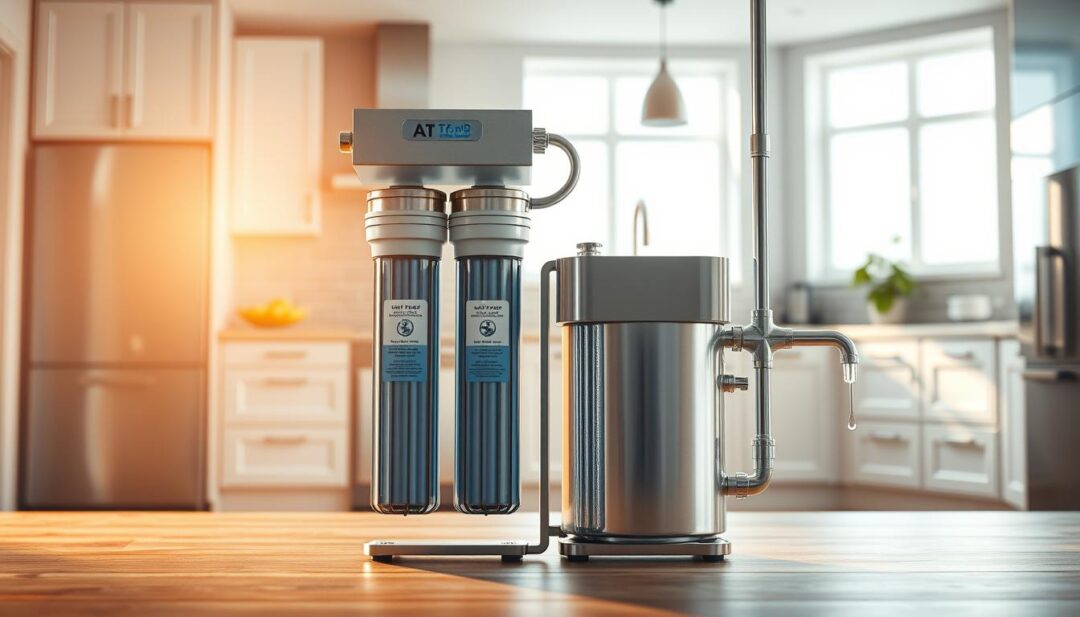
By comparing these filtration technologies, you can make an informed decision about the home water treatment solutions that best suit your needs.
Question3: What is My Budget for Purchase and Maintenance?
When considering the installation of a home water filtration system, understanding your budget is crucial. The total cost of ownership includes not just the initial purchase and installation but also ongoing maintenance expenses.
Initial System and Installation Costs
The initial cost of a home water filtration system can vary significantly based on the technology used, the size of the system, and the complexity of the installation. Here are some general categories:
Entry-Level Options
These are basic systems that filter water at a single tap. They are generally affordable, with prices starting around $50-$100.
Mid-Range Solutions
Mid-range systems often provide whole-house filtration and may include additional features like UV treatment. Prices for these systems can range from $500 to $2,000.
Premium Filtration Systems
High-end systems offer advanced filtration technologies, larger capacities, and more comprehensive coverage. These can cost $2,000 or more, sometimes reaching as high as $5,000 or more for complex installations.
| System Type | Price Range | Features |
|---|---|---|
| Entry-Level | $50-$100 | Single-tap filtration, basic filters |
| Mid-Range | $500-$2,000 | Whole-house filtration, additional features like UV |
| Premium | $2,000-$5,000+ | Advanced filtration, larger capacity, comprehensive coverage |
Long-term Maintenance Expenses
Maintenance costs include replacement filters, maintenance supplies, and potential repairs. The cost of replacement filters can vary, but on average, they can range from $50 to $200 per year, depending on the system and usage.
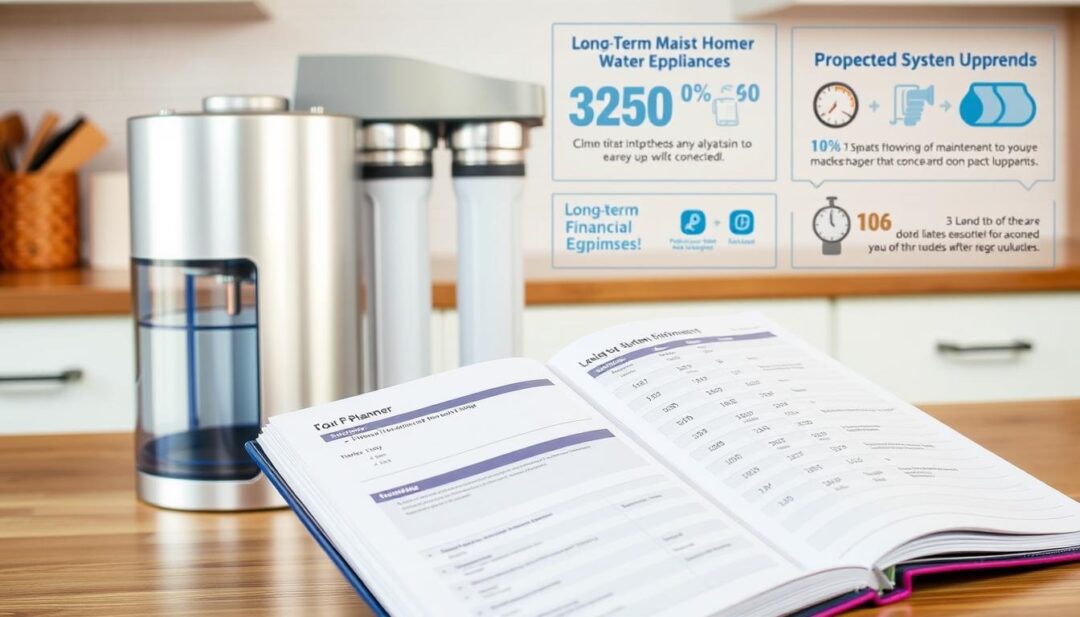
Return on Investment: Calculating Long-Term Savings
While the initial cost of a water filtration system may seem high, it’s essential to consider the long-term savings. By reducing your reliance on bottled water and potentially lowering your water bills, a home water filtration system can pay for itself over time. Additionally, the health benefits of having clean drinking water can lead to savings on medical expenses.
To calculate the return on investment, consider the following: the cost savings from not buying bottled water, any reduction in water bills due to more efficient use, and potential medical savings from avoiding waterborne illnesses.
Question4: How Will Installation Impact My Home?
Installing a home water filtration system is a significant decision that affects not only your water quality but also your home’s infrastructure. As you consider this investment, it’s crucial to understand the potential impacts on your home.
Space Requirements and System Placement
One of the primary considerations is the space required for the filtration system. Different systems have varying space requirements, and it’s essential to choose a system that fits your available space. For instance, whole-house systems typically require more space than point-of-use systems. You should assess your home’s layout to determine the most suitable location for the system, ensuring it is easily accessible for maintenance.
Necessary Plumbing Modifications
The type of plumbing modifications needed can vary significantly depending on the filtration system you choose. Some systems may require significant changes to your home’s plumbing, while others may need minimal adjustments. It’s vital to consult with a professional to assess the necessary modifications and ensure they are done correctly to avoid any future issues.
DIY vs. Professional Installation: What to Consider
When it comes to installing a water filtration system, homeowners often debate between DIY installation and hiring a professional. While DIY installation can save on upfront costs, it may lead to complications if not done correctly. On the other hand, professional installation ensures the job is done right, with the right tools and expertise, providing peace of mind and potentially saving on long-term costs. Consider your comfort level with DIY projects, the complexity of the system, and the potential risks before making a decision.
Ultimately, understanding the impact of installing a home water filtration system on your home is crucial for making an informed decision. By considering space requirements, necessary plumbing modifications, and the pros and cons of DIY versus professional installation, you can ensure a smooth installation process and enjoy the benefits of clean, filtered water.
Question5: What Maintenance Will the System Require?
The key to a well-functioning water filtration system lies in its maintenance, which includes regular checks and replacements. Regular maintenance is crucial to ensuring your home water filtration system operates effectively and continues to provide clean, safe drinking water. As stated by water quality experts, “Regular maintenance is not just a recommendation, it’s a necessity for the longevity of your system.”
Filter Replacement Schedules and Procedures
Filter cartridges must be changed regularly according to the manufacturer’s schedule, typically every 6 to 12 months, depending on usage and the type of filter. It’s essential to follow the recommended replacement schedule to maintain water quality. Failure to do so can lead to reduced system performance and potentially allow contaminants to pass through. Always refer to your system’s user manual for specific guidance on filter replacement procedures.
Routine Maintenance Tasks and Timeframes
Besides filter replacement, other routine maintenance tasks include checking the system’s pre-filters, cleaning or replacing them as necessary, and inspecting the system for any signs of wear or damage. These tasks should be performed every 3 to 6 months. Regularly testing the water quality is also recommended to ensure the system is functioning correctly.
Warning Signs Your System Needs Attention
There are several warning signs that indicate your water filtration system needs maintenance. These include a decrease in water pressure, changes in water taste or odor, and visible signs of wear or damage to the system or its components. If you notice any of these issues, it’s crucial to address them promptly to prevent further problems. As a rule of thumb, if you notice any unusual changes in your water or the system’s performance, it’s better to err on the side of caution and consult a professional.
By staying on top of maintenance, you can enjoy clean, safe drinking water and extend the lifespan of your home water filtration system. Regular maintenance not only ensures the system’s effectiveness but also contributes to the overall benefits of installing a home water filtration system, including improved water taste and quality, and potential long-term savings.
Question6: How Will a Water Filtration System Affect My Daily Life?
The benefits of installing a home water filtration system extend far beyond just cleaner drinking water. By improving the overall quality of your water, you can experience a significant impact on your daily life, from the taste of your drinking water to the longevity of your appliances.
Improvements in Water Taste and Quality
A home water filtration system can greatly enhance the taste and quality of your drinking water. With a filtration system, you can say goodbye to unpleasant odors and tastes, enjoying fresh and clean water straight from your tap. This improvement can encourage you to drink more water, contributing to better hydration and overall health.
Impact on Appliance Longevity and Performance
Using filtered water can also have a positive impact on your appliances. By reducing the mineral buildup that causes scaling, a water filtration system can help extend the lifespan of appliances like dishwashers, coffee makers, and water heaters. This means less maintenance and replacement costs over time, saving you money and hassle.
Environmental Considerations and Water Conservation
An eco-friendly water filtration system can contribute to water conservation efforts and reduce your environmental footprint. For instance, having a system that produces potable water from its rinse line means you’re making the most of your water resources. By choosing a system with a sustainable design, you can enjoy clean drinking water while also being kind to the planet.
By considering these aspects, you can appreciate how a home water filtration system is not just a practical solution for clean drinking water, but also a step towards a more sustainable and healthier lifestyle.
6 Questions to Ask Before Installing a Home Water Filtration System: Your Decision Guide
Before making the investment in a home water filtration system, homeowners should ask themselves several key questions. This guide will help you navigate the process, ensuring you make an informed decision that meets your needs.
Pre-Installation Checklist
To ensure a smooth installation process, it’s essential to have a pre-installation checklist. Here are key items to consider:
- Determine the contaminants present in your water
- Choose the right type of filtration system for your needs
- Establish a budget for the system and its maintenance
- Consider the space and plumbing requirements for the system
By checking off these items, you’ll be better prepared to select and install a system that works for you.
Questions to Ask Potential Installation Professionals
When consulting with potential installation professionals, ask the right questions to ensure you’re hiring a qualified expert. Some key questions to ask include:
- What experience do you have with water filtration system installations?
- Can you provide references or reviews from previous clients?
- What is the estimated cost and timeline for the installation?
By asking these questions, you’ll gain a better understanding of the professional’s qualifications and what to expect from the installation process.
Conclusion: Making the Right Choice for Your Home’s Water Quality
Installing a water filtration system for home is a decision that requires careful consideration of several key factors, including the type of contaminants present in your water and the right filtration technology. By asking the right questions and doing your research, you can make an informed decision that suits your needs and ensures clean, safe drinking water for years to come.
The purchase of home water treatment solutions is a significant investment in your family’s health and well-being. Understanding the benefits of installing a home water filtration system, such as improved water taste and quality, can help you make the right choice for your home.
By carefully evaluating your options and considering factors such as budget, installation, and maintenance, you can enjoy the many benefits of a water filtration system for home, including improved appliance longevity and performance, and a reduced environmental impact.

